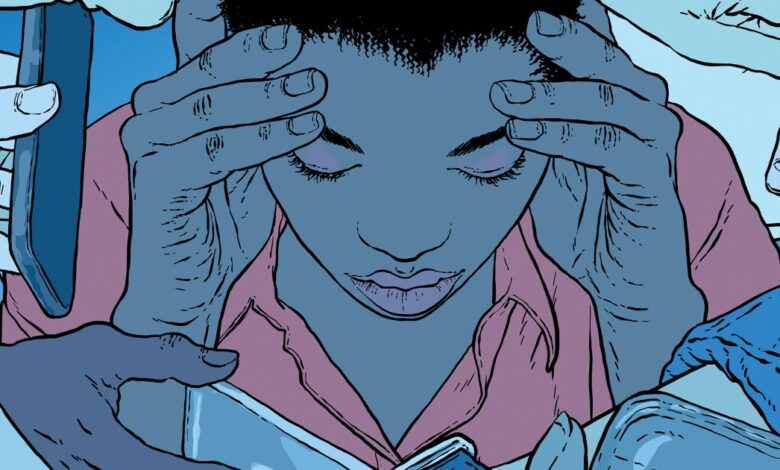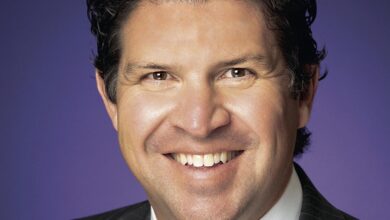As Students’ Mental-Health Concerns Grow, One University’s Professors Say They Should Get a Raise

[ad_1]
University of Illinois at Chicago faculty say they deserve to be paid more, partly because students’ mental-health needs in recent years have become so severe and time-consuming to address, while administrators have failed to adequately respond.
The faculty of the more than 34,000-student campus went on strike Tuesday after more than nine months of negotiations. They’re demanding that the university raise their pay by 21 percent over the next three years and raise the minimum salary for faculty from $50,000 to $61,000. They’re also calling for the administration to provide all students with mental-health assessments and increase their on-campus access to therapy.
“Our students need access to real, long-term mental-health resources while they’re students here at UIC, and they’re not getting them,” said Aaron Krall, a senior lecturer in the English department and the president of UIC United Faculty.
In response, administrators earlier this week proposed a $4.47-million mental-health package that they say would, among other things, fund the opening of a wellness space on campus and the hiring of more licensed therapists, psychiatrists, psychologists and support staff, as well as a consultant to advise them on ways to improve mental-health services.
While there’s been an uptick in organizing on college campuses this year, faculty and other staff members have usually argued that their pay has not been able to keep up with inflation or the increased demands on their workloads. It’s rare that student mental-health has entered the conversation.
About 80 percent of faculty nationally say that they’ve had a one-on-one conversation with a student in the past year about the student’s mental health, and about 20 percent reported that supporting their students’ mental health negatively impacted their own, according to data compiled by Sarah Ketchen Lipson, an assistant professor at the Boston University School of Public Health who has studied mental health in education.
Lipson said that over the past decade, there has been a steady increase in the prevalence of symptoms of depression, anxiety, and suicidality among young people, with notable increases starting in 2016. According to recent data from a study Lipson manages, called the Healthy Minds Study, more than 50 percent of students screened were found to have anxiety or depression.
Lipson said that recently, more students have reported that mental-health issues are affecting their academic performance.
Faculty members are actually taking on the emotional workload and the emotional labor in order to care for students the way that they need to be cared for.
According to Healthy Minds’ most recent data collection, about 80 percent of students who were surveyed reported that their mental health impeded their academic performance at least one or more days in the past month, and more than a quarter of students reported that they were academically impaired due to mental health for six or more days.
“If you think about core symptoms of depression, like hopelessness about the future, [they] make it really difficult to engage in any sort of incremental investment-like activities, like schooling,” Lipson said. “There’s not an immediate reward for one effort. It’s two years or four years or longer of investing in education to get that degree.”
At UIC, union members say they’re pushing for expanded on-campus therapy services and free psychological and neurological assessments for students in order to identify learning disabilities.
Mark Magoon, a senior lecturer in the English department, said that in addition to talking with students about their mental-health concerns, he also tries to provide accommodations to struggling students who are absent or miss deadlines. Magoon said he does so to help students succeed, but he thinks the additional work faculty take on to serve their students’ mental-health needs should be acknowledged.
“That means we’re giving up extra hours, that we’re changing rules, that we’re sort of giving up a little bit of ourselves and investing our time in our emotions,” Magoon said. “And we love doing it, but it goes above and beyond and there’s no merit-based raise that goes back in terms of rewarding us.”
Yael Lenga, a 19-year-old junior with a double major in sociology and neuroscience, joined faculty members on the picket lines on Tuesday.
“The access to student mental-health resources is the most powerful piece for me as an undergraduate student,” Lenga said. “Undergraduate students don’t have any union and don’t have any kind of collective-bargaining power, which means it’s up to faculty and grad students to advocate on our behalf.”
Lenga said that over the past week, she has been collecting testimonies from fellow students about how they use mental-health resources on campus. Lenga said the students spoke about the need for improved resources and that they often turn to faculty members for support.
“Far and wide, these testimonies have been saying that not only is access to mental-health resources imperative, but that faculty members are actually taking on the emotional workload and the emotional labor in order to care for students the way that they need to be cared for,” Lenga said.
Krall said the university’s new mental-health plan is not specific enough, doesn’t include faculty and students in the decision-making process and doesn’t include a timeline for implementing the changes. A spokesperson for the university didn’t respond to a request for comment on Tuesday afternoon.
Krall is specifically concerned that the university announced a consulting contract with the American College Health Association to help design a strategy for addressing students’ mental-health concerns, instead of just guaranteeing mental-health assessments for all students.
“What they say is they’re going to hire a consultant who’s going to help them figure out what to do,” Krall said. “We’ve seen a lot of consultants at the university over the years, and it doesn’t always produce results.”
[ad_2]
Source link






